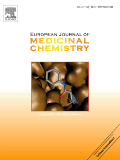
EUROPEAN JOURNAL OF MEDICINAL CHEMISTRY
Scope & Guideline
Pioneering Insights for the Future of Pharmacology.
Introduction
Aims and Scopes
- Drug Design and Discovery:
The journal publishes research on the design and synthesis of new drug candidates, highlighting innovative strategies for targeting various diseases, including cancer, infectious diseases, and metabolic disorders. - Structure-Activity Relationship (SAR) Studies:
A significant focus is placed on SAR studies, which investigate the relationship between chemical structure and biological activity to optimize the efficacy and selectivity of drug candidates. - Targeted Protein Degradation:
The journal features studies on PROTACs (proteolysis-targeting chimeras) and other modalities that aim to induce targeted degradation of specific proteins, offering a novel approach to cancer therapy and beyond. - Nanotechnology in Drug Delivery:
Research on nanotechnology applications in enhancing drug delivery systems, improving bioavailability, and targeting specific tissues or cells is a prominent theme. - Natural Products and Derivatives:
The journal explores the medicinal properties of natural products and their synthetic derivatives, investigating their potential as therapeutic agents and the mechanisms of action involved. - Multitarget Approaches:
There is a growing emphasis on the development of multitarget drugs that can simultaneously interact with multiple biological pathways, enhancing therapeutic efficacy and reducing resistance. - Computational Chemistry:
The integration of computational methods for predicting interactions, optimizing lead compounds, and informing synthetic strategies is a key component of the research published in the journal.
Trending and Emerging
- Targeted Protein Degradation Technologies:
The rise of PROTACs and other targeted degradation technologies is a significant trend, with increasing numbers of papers focusing on the design and application of degraders for therapeutic purposes. - Immunotherapy and Immune Modulation:
There is an emerging focus on small molecules that modulate immune responses, particularly in the context of cancer therapy, highlighting the intersection of medicinal chemistry and immunology. - Artificial Intelligence in Drug Discovery:
The integration of artificial intelligence and machine learning in drug discovery processes is gaining traction, with research exploring how these technologies can accelerate the identification of lead compounds. - Nanomedicine and Drug Delivery Systems:
Research that emphasizes the development of nanotechnology-based drug delivery systems is on the rise, focusing on improving the delivery and efficacy of therapeutics while minimizing side effects. - Multifunctional Therapeutics:
Emerging interest in multifunctional drugs that target multiple pathways or mechanisms simultaneously is evident, reflecting a shift towards more comprehensive therapeutic strategies. - Natural Product Derivatives with Enhanced Activities:
The exploration of derivatives of natural products, particularly those with optimized pharmacological profiles, is increasingly common as researchers seek to harness the therapeutic potential of these compounds. - Research on Metabolic Disorders:
A growing number of studies are addressing metabolic disorders, including diabetes and obesity, with a focus on discovering new therapeutic agents that can effectively manage these conditions.
Declining or Waning
- Traditional Small Molecule Inhibitors:
Research focusing solely on traditional small molecule inhibitors without integrating newer methodologies, such as PROTACs or nanotechnology, seems to be less frequent as the field evolves towards more innovative therapeutic approaches. - Single Target Drug Development:
There is a noticeable decline in publications centered around single-target drug development. The trend is shifting towards multitarget strategies that address the complexity of diseases, particularly in cancer and chronic conditions. - Synthetic Pathway Optimization:
Publications dedicated exclusively to optimizing synthetic pathways without a strong emphasis on biological evaluation are becoming less common, as researchers increasingly prioritize bioactivity and therapeutic relevance in their studies. - Basic Pharmacology Studies:
Basic pharmacological studies that do not explore clinical implications or translational potential are appearing less frequently, reflecting a growing expectation for research to connect laboratory findings with clinical applications.
Similar Journals
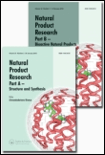
NATURAL PRODUCT RESEARCH
Pioneering Discoveries in Plant and Organic ChemistryNATURAL PRODUCT RESEARCH is a distinguished journal published by Taylor & Francis Ltd, dedicated to advancing the field of natural product science through the dissemination of high-quality research. Established in 2003, this journal serves as a pivotal platform for scholars in Analytical Chemistry, Biochemistry, Organic Chemistry, and Plant Science, boasting an impressive categorization including Q2 in Plant Science and Q3 in the other disciplines for 2023. With a current Scopus ranking that highlights its significance within various scientific communities, NATURAL PRODUCT RESEARCH reflects the complexities and innovations associated with natural compounds and their applications. Researchers, professionals, and students will find valuable insights and breakthroughs that contribute to the understanding of bioactive compounds and their roles in health and environmental sustainability. Access options are available, ensuring that the latest findings are accessible to a global audience. As this journal continues to publish until 2024, it remains an essential resource for those at the forefront of natural product research.
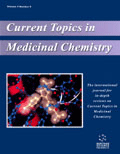
CURRENT TOPICS IN MEDICINAL CHEMISTRY
Connecting Ideas, Enhancing TherapiesCURRENT TOPICS IN MEDICINAL CHEMISTRY is a prestigious journal published by Bentham Science Publishers Ltd, dedicated to advancing the field of medicinal chemistry through the dissemination of high-quality research from 2001 to 2024. With an ISSN of 1568-0266 and an E-ISSN of 1873-4294, this journal is recognized for its significant contributions, as evidenced by its Scopus ranking in the 63rd percentile in the category of Drug Discovery, specifically at position #58 out of 157. Currently placed in Quartile 3 within Drug Discovery and Quartile 2 in miscellaneous medicine as of 2023, it serves as an essential resource for researchers, professionals, and students interested in the latest developments, methodologies, and applications in medicinal chemistry. The journal aims to foster collaboration and innovation by featuring original research articles, reviews, and brief communications that address current and emerging challenges in the discipline. Although it is not an open access platform, the journal's rich content is indispensable for those striving to enhance therapeutic strategies and drug development processes.
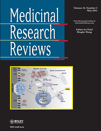
MEDICINAL RESEARCH REVIEWS
Connecting Researchers to the Latest in Medicinal ScienceMEDICINAL RESEARCH REVIEWS, published by Wiley, is a leading journal in the fields of Drug Discovery, Molecular Medicine, and Pharmacology. With an impressive impact factor and esteemed standing in its category quartiles (Q1 in all three fields), this journal serves as a vital platform for the dissemination of cutting-edge research and reviews that drive innovation in therapeutic development and molecular health sciences. Since its inception in 1981, MEDICINAL RESEARCH REVIEWS has garnered a robust readership within the scientific community, underscored by its high rankings in Scopus – where it ranks #3 in Pharmacology and #2 in Drug Discovery, placing it within the top echelons of academic influence. Researchers, professionals, and students alike benefit from its rich content and comprehensive approaches to tackling complex medicinal challenges, making it an essential resource for those invested in advancing the frontiers of biomedical research.
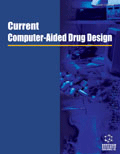
Current Computer-Aided Drug Design
Advancing Drug Discovery Through Computational InnovationCurrent Computer-Aided Drug Design, published by BENTHAM SCIENCE PUBL LTD, is a pivotal journal dedicated to the integration of computer-aided methodologies within the drug design process. With its ISSN 1573-4099 and E-ISSN 1875-6697, this journal serves as a vital resource for researchers, professionals, and students interested in advancing the fields of pharmacology and molecular medicine. Operating under a framework that spans from 2006 to 2024, it aims to foster innovative approaches and discussions surrounding drug design strategies, computational techniques, and the therapeutic potential of novel compounds. Although it currently holds a Q4 rating in Drug Discovery and Molecular Medicine as well as a Q3 in Medicine (miscellaneous) within the 2023 category quartiles, the journal continues to enhance its visibility and relevance in the academic community. Its Scopus rankings reflect its commitment to quality research, positioning it in the context of drug discovery and molecular studies. As the field of drug design evolves, Current Computer-Aided Drug Design remains an essential platform for disseminating cutting-edge findings and facilitating collaboration among specialists aiming for significant advancements in drug development.

Research Journal of Pharmacognosy
Empowering researchers to shape the future of complementary medicine.Research Journal of Pharmacognosy, published by the Iranian Society of Pharmacognosy, is a pioneering forum for the dissemination of research in the field of pharmacognosy and its related disciplines. Founded in 2014 as an Open Access journal, it aims to provide swift and free access to high-quality research articles, fostering collaboration and innovation among researchers, professionals, and students. Operating from Tehran, Iran, this journal addresses a wide range of topics including complementary and alternative medicine, drug discovery, and organic chemistry, making it an invaluable resource for those researching the extraction, characterization, and application of naturally derived compounds. The journal holds a Category Quartile ranking of Q3 in Complementary and Alternative Medicine and Q4 in both Drug Discovery and Organic Chemistry for the year 2023, which underscores its growing influence within the scientific community. By serving as a platform for current advances and thought leadership in pharmacognosy, the Research Journal of Pharmacognosy plays a crucial role in bridging the gap between traditional practices and modern pharmacological applications.

MOLECULAR DIVERSITY
Exploring the Frontiers of Molecular ScienceMOLECULAR DIVERSITY, published by Springer, stands as a pivotal platform within the fields of chemistry, biology, and pharmacology since its inception in 1995. This esteemed journal aims to foster interdisciplinary research and innovation, particularly in areas such as catalysis, drug discovery, inorganic and organic chemistry, and molecular biology. With a diverse scope that reflects contemporary scientific challenges, it has been recognized for its significant contributions, boasting commendable Scopus rankings and an impact factor that underscores its relevance in critical fields. Although not an open access journal, MOLECULAR DIVERSITY continues to influence and engage researchers, professionals, and students alike by providing a forum for high-quality peer-reviewed articles and cutting-edge research findings. As it converges years of scientific dynamism from 1995 to 2024, this journal remains vital for those advancing the frontiers of molecular science and engineering.
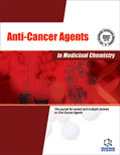
Anti-Cancer Agents in Medicinal Chemistry
Pioneering research in medicinal chemistry for cancer treatment.Anti-Cancer Agents in Medicinal Chemistry is a pivotal journal in the realm of cancer research, published by Bentham Science Publishers in the United Arab Emirates. With an ISSN of 1871-5206 and an E-ISSN of 1875-5992, this esteemed journal has been disseminating high-quality research since its inception in 2006, and is set to continue through 2024. The journal is categorized in the third quartile (Q3) across key areas including Cancer Research, Molecular Medicine, and Pharmacology, highlighting its essential role in providing valuable insights to the scientific community. Despite its open-access status being unspecified, researchers benefit from the rigorous peer-review process ensuring the publication of significant advancements. The journal ranks well within Scopus, particularly in the fields of Pharmacology and Cancer Research, which positions it as a notable resource for professionals, students, and researchers aiming to deepen their knowledge in anti-cancer strategies. Through its comprehensive scope, the journal aims to bridge the gap between medicinal chemistry and clinical applications, making it an indispensable tool for those dedicated to advancing cancer therapeutics.
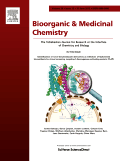
BIOORGANIC & MEDICINAL CHEMISTRY
Unveiling Breakthroughs in Medicinal ChemistryBIOORGANIC & MEDICINAL CHEMISTRY, published by Pergamon-Elsevier Science Ltd, is a prominent journal in the fields of biochemical research and drug discovery, with an ISSN of 0968-0896 and an E-ISSN of 1464-3391. Established in 1993, it has garnered respect and recognition, evidenced by its categorization in various quartile ranks across 2023, including Q2 in Clinical Biochemistry and Pharmaceutical Science. It holds significant Scopus rankings, placing it in the 75th percentile in Pharmaceutical Science and 74th percentile in Organic Chemistry, highlighting its influential contributions to ongoing research and developments. This journal provides a platform for disseminating advancements in bioorganic and medicinal chemistry, focusing on innovative methodologies, therapeutic advancements, and molecular pharmacology. Although it does not follow an open-access model, it remains a key resource for researchers, professionals, and students aiming to stay at the forefront of scientific discovery in the UK and beyond. The journal’s commitment to enhancing knowledge within the biomedical community makes it an essential read for those passionate about this dynamic field.
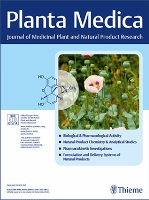
PLANTA MEDICA
Cultivating Knowledge in Plant-Based MedicinePLANTA MEDICA is a premier journal dedicated to advancing the field of medicinal plant research, published by Georg Thieme Verlag KG in Germany. With an ISSN of 0032-0943 and an E-ISSN of 1439-0221, this journal has been a cornerstone of scholarly communication since its inception in 1961. Recognized for its rigorous peer-review process, PLANTA MEDICA holds a notable reputation in the academic landscape, featuring a 2023 Q2 ranking in categories such as Analytical Chemistry and Pharmaceutical Science, along with respectable Q3 rankings in Drug Discovery and Molecular Medicine. The journal focuses on the synthesis, pharmacological, and biochemical assessment of phytochemicals, making it an essential resource for researchers, professionals, and students alike who are engaged in the exploration of complementary and alternative medicine. Although it does not offer open access options, its content is instrumental in identifying new therapeutic agents derived from plants, thereby underscoring its importance in drug discovery and holistic health research.
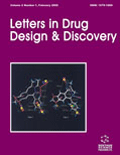
Letters in Drug Design & Discovery
Advancing the Frontiers of Drug DiscoveryLetters in Drug Design & Discovery is an esteemed journal dedicated to advancing the fields of Drug Discovery and Molecular Medicine. Published by Bentham Science Publishers, this journal offers a platform for the dissemination of innovative research and advanced methodologies, enhancing collaboration among researchers and professionals in pharmaceutical sciences. Despite its current Q4 ranking in Drug Discovery and Molecular Medicine and Q3 in Pharmaceutical Science for 2023, the journal is committed to improving its presence in the academic community by providing quality, peer-reviewed publications that cover various aspects of drug design and discovery, including novel therapeutic approaches and methodologies. With a focus on both foundational and cutting-edge research from around the globe, Letters in Drug Design & Discovery is pivotal for those seeking to stay abreast of developments in drug development and molecular research. Researchers are encouraged to submit their work, engage with the burgeoning field, and contribute to the ongoing dialogue driven by this journal, which spans the years from 2005 to 2024. While the journal does not currently offer open access, its contributions remain accessible to a wide range of academic and professional audiences.